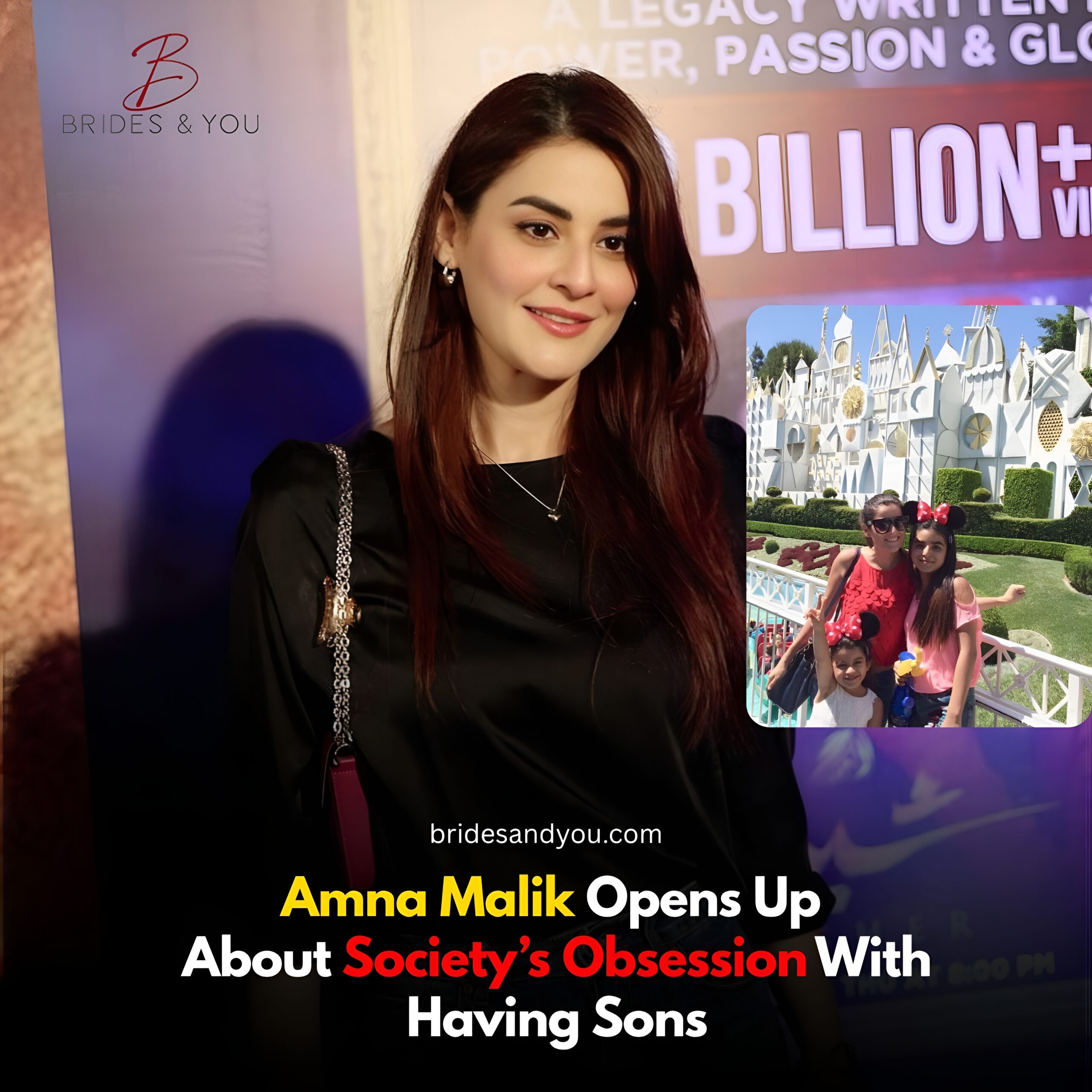Now Reading: Amna Malik Opens Up About Society’s Obsession With Sons and Her Painful Miscarriage Journey
-
01
Amna Malik Opens Up About Society’s Obsession With Sons and Her Painful Miscarriage Journey
Amna Malik Opens Up About Society’s Obsession With Sons and Her Painful Miscarriage Journey

Amna Malik on Society’s Obsession With Sons
Amna Malik, a talented Pakistani actress and television host, is known for her beauty, confidence, and unfiltered honesty. Over the years, she has gained admiration not only for her work but also for her courage to address uncomfortable topics that many shy away from. In her recent appearance on Fuchsia, Amna spoke candidly about her personal pain, revealing that she suffered three miscarriages all of baby boys.
Her conversation was emotional and deeply moving, as she discussed not only her personal loss but also society’s unrealistic expectations and obsession with having sons. Through her story, Amna shed light on how many women silently suffer under the weight of these social pressures.

Amna Malik’s Emotional Revelation About Miscarriages
Amna Malik revealed that experiencing a miscarriage is an incredibly painful and isolating journey. She shared that she has gone through three miscarriages, each one leaving a lasting mark on her heart and mind. According to Amna, miscarriage is not only a physical trauma but also a huge emotional and psychological struggle.
However, what made her pain worse was society’s reaction. Instead of offering compassion or emotional support, people were more concerned that she had lost a boy. “The only thing that made people feel bad for me was that my child who passed away was a boy,” she said. This painful statement reflects the deep-rooted bias that still exists in many cultures where the birth of a son is celebrated, while the birth of a daughter often brings disappointment.
The Pressure Women Face After Miscarriage
Amna also discussed how society views women after they experience miscarriages. She said people often treat women like machines, expecting them to “try again” after only a few months. For many, the physical and mental recovery period is completely ignored.
This insensitive attitude shows how little empathy women receive during one of the most painful experiences of their lives. Amna emphasized that women need time to heal and that the focus should not be on producing another child but on supporting a woman’s well-being.

Amna Malik on Family Pressure and Gender Expectations
During the interview, Amna was asked whether she faced any pressure for not having a son, especially since she is now a mother to two daughters. She admitted that while her husband’s family did hope for a son, her husband himself never pressured her.
Amna shared that she comes from a family of strong women she has three sisters and was raised in an environment where daughters were never considered less valuable than sons. She explained that this upbringing helped her remain strong and unaffected by societal judgments.
She also mentioned that her daughters bring her immense joy and pride. Her message was clear: children, regardless of gender, are blessings, and it is time society learns to celebrate daughters with the same love and respect as sons.
Breaking the Silence on Miscarriage and Gender Bias
Amna Malik’s courage to talk about her miscarriages publicly is commendable. Miscarriage is still considered a taboo topic in many societies, especially in South Asia. Women often suffer in silence, feeling guilt or shame for something completely beyond their control.
By sharing her experience, Amna has started an important conversation. Her story helps normalize the discussion around miscarriage and highlights the urgent need for empathy, understanding, and emotional support for women who go through it.
Moreover, her words also challenge the outdated belief that a woman’s worth is tied to giving birth to a son. Amna’s story reminds us that a daughter is just as precious, capable, and deserving of love as a son.
Society Needs to Change Its Mindset
Amna Malik’s story is not just her own it represents the experience of countless women who face pressure, criticism, or pity for not having sons. The obsession with sons has deep cultural roots, but voices like Amna’s can help shift the narrative.
Society needs to move beyond gender-based expectations and focus on valuing every child equally. True progress lies in creating an environment where mothers are respected and supported regardless of whether they give birth to a boy or a girl.
Conclusion
Amna Malik’s bravery in sharing her story is a reminder that speaking up can bring real change. Her honesty about loss, recovery, and resilience has opened up space for important conversations about gender bias, women’s health, and emotional healing.
Her message to women is powerful: do not let society’s outdated standards define your worth. Every child is a blessing, and every mother deserves love, respect, and understanding.













